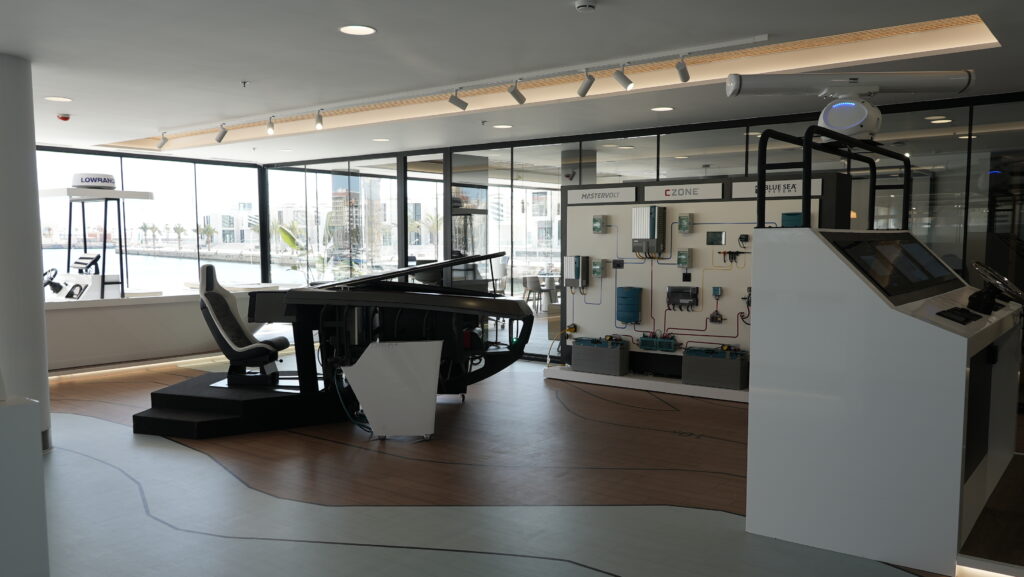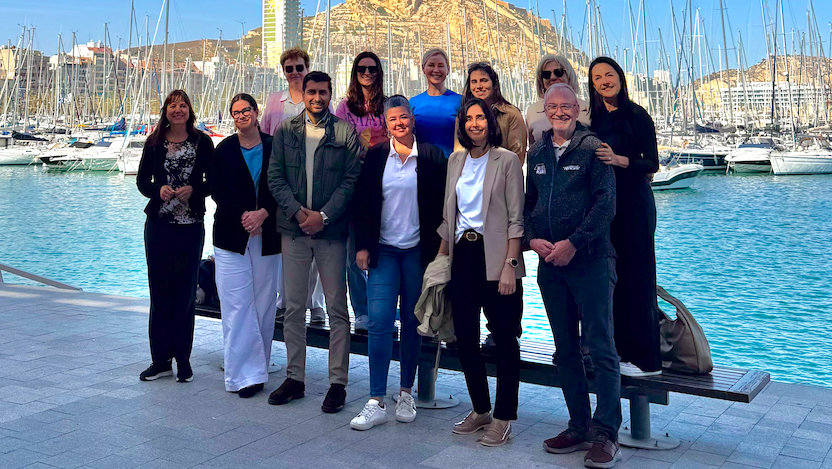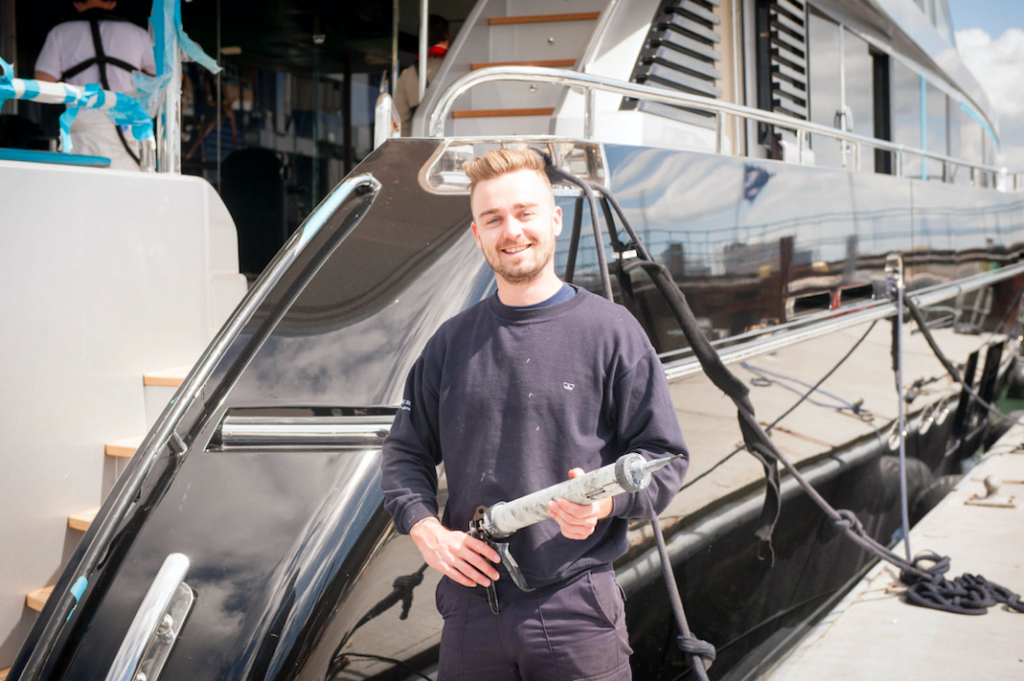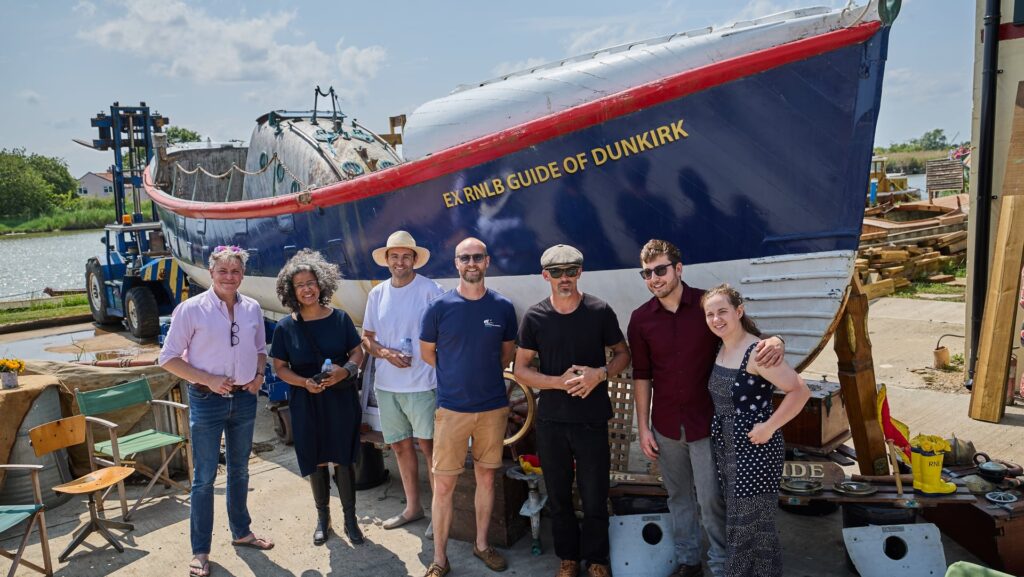MIN sits down with up with Fiona Richardson, HR director for Navico Group, to discuss recruitment, retention and reciprocity.
Like many, Fiona Richardson in uneasy about the ageing workforce across the marine world.
But Richardson has several cards up her sleeves which are helping to ensure that Navico (part of the Brunswick Group) is well positioned for the future. One of those is understanding individual’s career aspirations, which have changed dramatically from that of former generations.
Previously people would have a tendency to stay in a job for 20-30 years, she says, “but nowadays you’re lucky if you get two to three years out of an employee doing a really great job.

“Being part of Brunswick, a large, scalable enterprise is definitely a big help because in order to attract and retain people, you have to give them optimism.
‘People want to join an organisation where they can use the skills that they have and use their strengths.”
Thus, Navico has career mapping conversations with employees and then actively works to ensure the employment pathway is flexible, with multiple roles, but – crucially – staying within one parent organisation.
She rattles off opportunities within the Brunswick Group, from Mercury to Freedom Boat Club to ringfenced boatbuilders, and mentions how having this many working parts changes the definition of success (Brunswick companies span 15 countries over 31 sites, and employ circa 15,500 including temporary, seasonal workers).
“If we lose someone after two to three years [from one role], but we retain them within the overall group, that is a success.
“Otherwise you’re going to lose them to a competitor, you’ll lose them externally.”
Recruiting from the outside world
Richardson says that the business, the marine world, should be able to sell itself.
“When I was first brought into this organisation, and I stepped in the door, it was a ‘yes’. I went out in one of the boats and immediately you fall in love with the products. How could I say ‘no’?”
This means instead of waiting for potential recruits to find Navico, the company’s strategically promoting itself to likely candidates to join the 2,670 active employees (globally).
“We work in partnership with universities,” Richardson explains. She speaks of specific courses in Italy – technical training – that Navico partners with. “It’s multifaceted,” she says. “Training and support in one.”
Navico Group has signed a three-year technical partnership with Politecnico di Milano’s Master in Yacht Design program, offering lectures to help shape the next generation of yacht designers. All courses are taught in English and attract students from across the globe. Sessions include subjects like the evolving role of electronics and systems in yacht design. As technical partners, Navico also participates in key industry events hosted by the university, including the Genoa Boat Show. It will present a project on the role of AI in navigation and monitoring.
The aim is that these type of partnerships will build future talent pipelines. These include programs that offer English-speaking technical courses and help to identify and develop candidates with both technical aptitude and passion for marine technology.
Richardson emphasises the importance of “constantly looking at the pipelines, looking at succession” to ensure continuity of expertise across the organisation’s diverse technical disciplines.
Reciprocal mentoring: marine knowledge for tech know-how
Once the recruits are in the door, they get mentored. Richardson says it’s not hard to find people willing to provide advice and guidance. Navico draws on individuals who want to leave a legacy before they retire. But the mentorships are two-way.
“We have a lot of mentorship programs in place whereby we pair individuals so that they can learn from one another,” she says.
“The younger generations coming in, for the most part, are incredibly tech savvy. They’re also mentoring the people who might have been in the business for many, many years.
“It’s complementary.”
Other aspects of retention include the acceptance – and indeed encouragement – of hybrid working.
“There is massive value in people coming together and collaborating. But there’s also a great value of giving people their flexibility. After all, we’re all adults, right?
“We stay focused on output — are people delivering upon their role?”
The company also runs professional development programs, including monthly ‘dockside chats. These virtual sessions cover topics from customer success to leadership development and regularly attract hundreds of participants.
Centres of expertise in many locations
Rather than maintaining traditional headquarters, Navico has ‘centres of expertise’ across regions. Richardson says this supports the company’s philosophy of maintaining “boots on the ground in many locations, especially sales and service satellite offices, because you need to be close to the customer.”

MIN joined Richardson at the opening of Navico’s primarily B2B support focused EMEA Experience Centre (used for in-house technical training and on water experiences) in Alicante.
That’s designed to deliver immersive, hands-on experiences, and offer customers an opportunity to explore Navico Group’s diverse product portfolio.
The post Navico Group talks recruitment, retention and ‘selling the marine world’ appeared first on Marine Industry News.



Leave a Reply